Click on photo to start video.
🏢 Milan’s vertical forests’ plant life 🌱 equals 3 hectares of forests 🌳 0 maintained by “Flying Gardeners”, a specialized team of arborists-climbers.
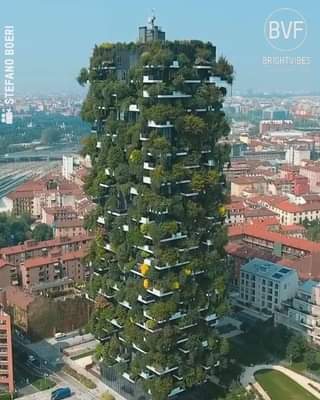
Click on photo to start video.
🏢 Milan’s vertical forests’ plant life 🌱 equals 3 hectares of forests 🌳 0 maintained by “Flying Gardeners”, a specialized team of arborists-climbers.
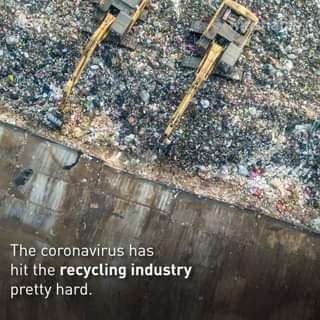

“A new study suggests that if Europe planted trees across all the land suitable for reforestation, it might not only sequester carbon but also partially ameliorate the increasingly dry European summers predicted by climate change models.”
Plant more trees! This message has been one of the cornerstones of the European response to worsening climate change. A new study published in Nature Geoscience suggests that if Europe planted trees across all the land suitable for reforestation, it might not only sequester carbon, but also partially ameliorate the increasingly dry European summers predicted by climate change models. In all, mass reforestation could increase summer rainfall by an average of 7.6%.
“When planned carefully, reforestation could result in additional benefits in regions where it is implemented,” said Ronny Meier, a researcher at the Swiss Federal Institute of Technology, Zurich (ETH Zürich), and lead author on the study.
Scientists have long identified a link between forests and rainfall, with scientists in the 1850s expressing alarm at reduced rainfall following deforestation. The exact mechanisms of this relationship are, however, still not fully understood. Meier and his colleagues used data from 3,481 rain-gauge stations across Europe to build a statistical model linking forest cover and rainfall levels. The research team then used the model to predict how much rainfall might change if forest cover increased.
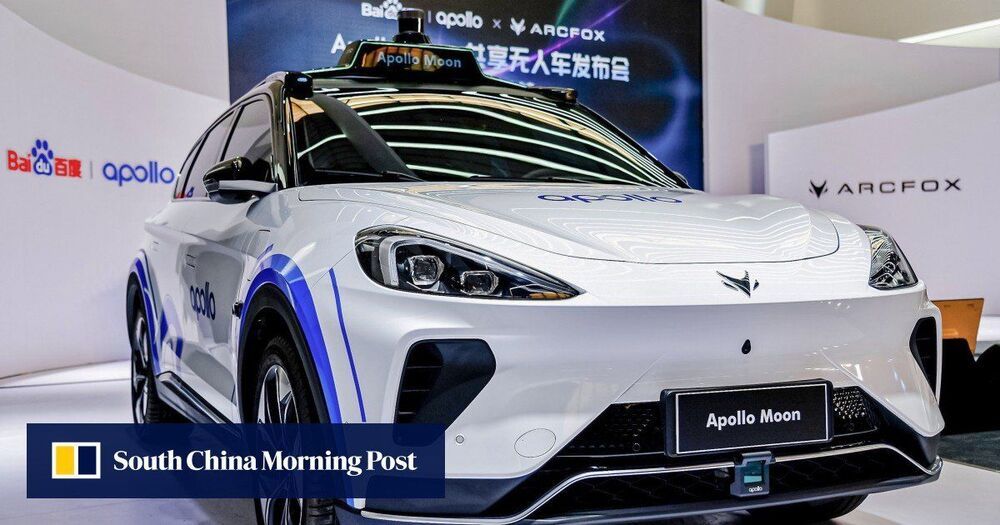
Commercial prospects for robotaxi services remain uncertain in the near term due to the immaturity of the technology, the absence of legislation to clearly define responsibility in case of a self-driving accident, and persistently high costs associated with the complex self-driving systems.
Baidu’s autonomous driving unit has partnered with the luxury electric vehicle brand of BAIC Group to bring fifth generation Apollo Moon robotaxis to Chinese roads, cutting the cost of the vehicles by two thirds.
Imagine a home that pay you to live in it because you can make a living out of it and grow almost all of your food in it as even sell food from it. Imagine a home that provides its own water and energy. Imagine a home concept that will work almost anywhere on Earth or in space that is cheap to build! Imagine living a high standard of living with virtually no environmental or carbon footprint whilst you retain freedoms. Imagine much less need for utilities. Imagine a home that is resilient, sustainable, can stand up better to environmental or manmade disasters. You own personal bug-in fortress. Imagine a home so green it will start an ice age! See the Greenest concept ever! Image a home you could put almost anywhere! This IS a world changing concept. Make it go viral!
You can support Galactic Gregs by supporting the sister channel Green Gregs by clicking the links below:
See the Special Deals at My Patriot Supply (great space mission food): www.PrepWithGreg.com.
For gardening in your space habitat (or on Earth) Galactic Gregs has teamed up with True Leaf Market to bring you a great selection of seed for your planting. Check it out: http://www.pntrac.com/t/TUJGRklGSkJGTU1IS0hCRkpIRk1K
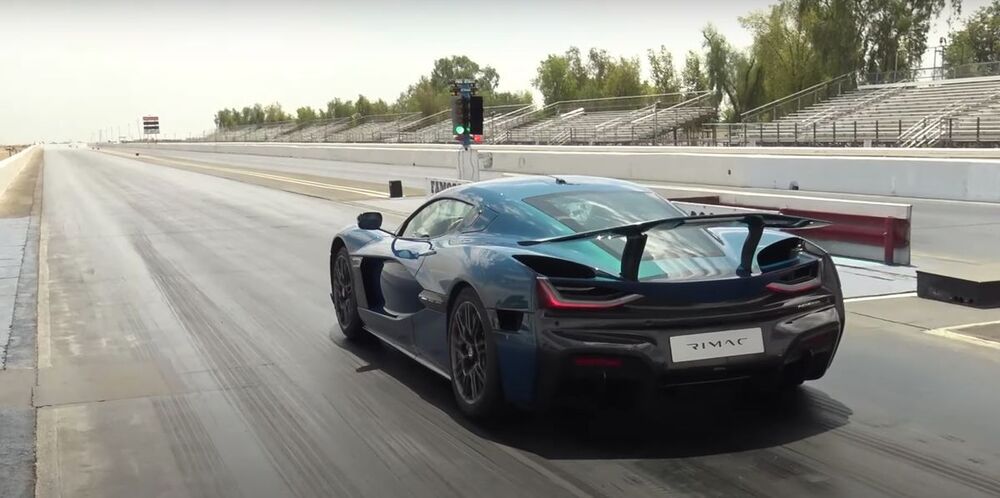
#Electric and faster than a Tesla. The Rimac Nevera is now officially the fastest accelerating production vehicle in the world. While on its way to participate in Pebble Beach celebrations this weekend, the electric hypercar made a stop at Famoso Raceway in McFarland, California, where it managed to set a production car record quarter-mile time of 8.582 seconds at 167.51 mph, according to Rimac. That was fast enough to beat the company’s own unofficial record of 8.62 seconds, which it set in Croatia back in June. Unlike that previous attempt, Rimac utilized a drag-friendly, VHT-prepped surface this time around. https://www.roadandtrack.com/news/a37304155/rimac-nevera-qua…ld-record/
Rimac enlisted Brooks Weisblat from DragTimes to be the wheelman for the record-setting attempt. Thankfully, that means we have some great video footage to go along with the new record. The Nevera is perfectly suited for this sort of endeavor, as the electric hypercar packs 1,914 horsepower and 1,741 lb-ft of torque. The car’s four electric motors also provide all-wheel drive, which utilizes Rimac’s All-Wheel Torque Vectoring 2 technology. Despite the help from the prepared surface and AWD, the Nevera wasn’t exactly testing in ideal conditions. The temperatures outside were as high as 98 degrees fahrenheit, with the track itself measuring in at 149 degrees fahrenheit. This required the company to make some setup adjustments as they went, making several passes in the process. The record-setting run itself was actually the eleventh pass the company made in quick succession.
This content is imported from YouTube. You may be able to find the same content in another format, or you may be able to find more information, at their web site.
We’ve seen a lot of electric vehicle growth and success stories in the past several years, but one area that’s been a bit of a letdown has been the semi truck market. Unfortunately, we still don’t have the Tesla Semi, and it was recently delayed until 2,022 and a big side area of that market that “futurists” have long been excited about is potential self-driving trucks. Platoons of self-driving semi trucks are especially exciting since tight, train-like caravans of semi trucks would use far less energy than the current system, and those trucks could much more easily be cost-competitive electric trucks with zero tailpipe emissions. Anyway, though, we’re getting ahead of ourselves again.

Last month, Indiana’s Department of Transport (INDOT) announced a collaboration with Purdue University and German company Magment to test out whether cement with embedded magnetized particles could provide an affordable road-charging solution.
Most wireless vehicle charging technologies rely on a process known as inductive charging, where electricity pumped into a wire coil creates a magnetic field that can induce an electric current in any other nearby wire coil. The charging coils are installed at regular intervals under the road, and cars are fitted with a receiver coil that picks up the charge.
But installing thousands of miles of copper under the road is obviously fairly costly. Magment’s solution is to instead embed standard concrete with recycled ferrite particles, which are also able to generate a magnetic field but are considerably cheaper. The company claims its product can achieve transmission efficiency of up to 95 percent and can be built at “standard road-building installation costs.”
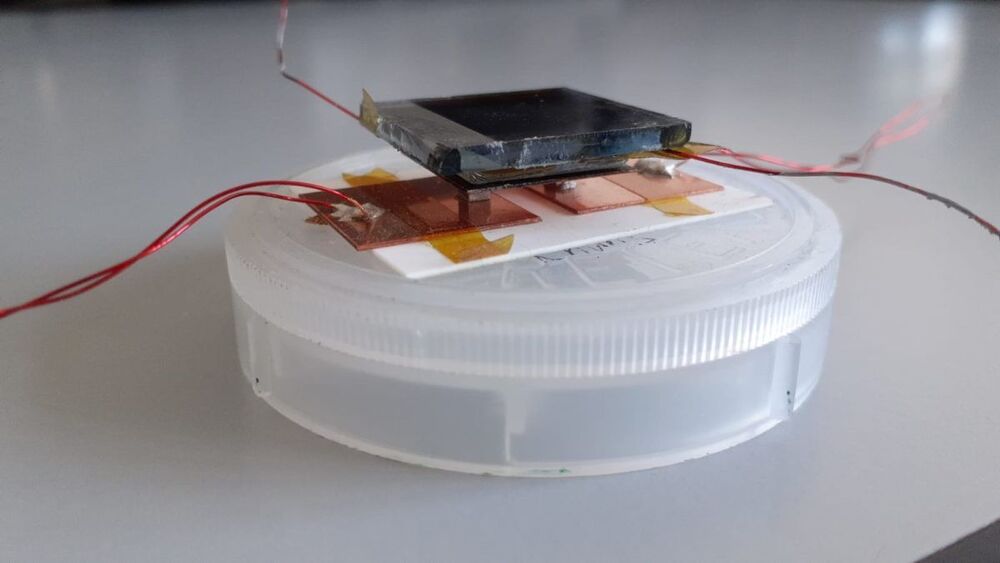
Heat flows naturally through the TEG because its cold side is kept at room temperature, while its hot side, which is in thermal contact with the cell, is at a high temperature. The Seebeck effect, which is the direct conversion of temperature differences between two semiconductor materials into electric voltage, generates this difference which then translates into additional electrical power.
The scientists decided not to use a spectrum splitting technology, which is generally utilized in these applications, to direct different parts of the solar spectrum towards either the PV or the TEG unit. “It is more convenient, in terms of final efficiency gains, to keep the solar cell at the same temperature of the TEG hot side, instead of keeping the cell cold but losing much of the recoverable heat,” the academics explained, noting that a wide-gap solar cell based on perovskite was chosen for the device, due to its lower sensitivity to high temperatures. “Temperature-sensitive materials, such as silicon, lose too much efficiency to make the hybridization convenient,” they further explained.
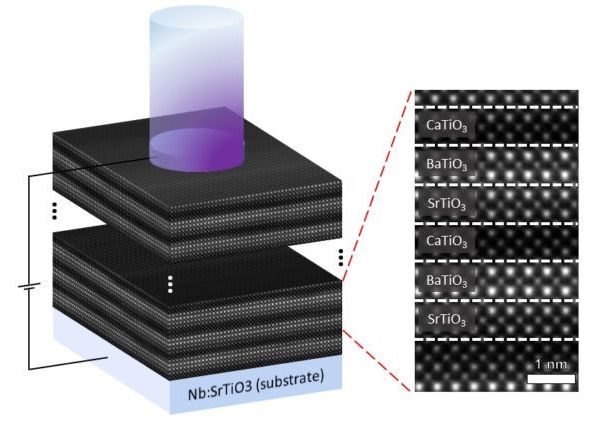
German researchers developed a lattice arrangement of three different layers of ferroelectric crystals that created a powerful photovoltaic effect.
Combining ultra-thin layers of different materials can raise the photovoltaic effect of solar cells by a factor of 1,000 according to researchers at Martin Luther University Halle-Wittenberg (MLU) in Germany.
Their findings, published in the journal “Science Advances,” described a lattice arrangement of three different layers of ferroelectric crystals (in this case, of barium titanate, strontium titanate, and calcium titanate) that created a powerful solar energy producing effect.
Ferroelectric means that the material has spatially separated positive and negative charges. The charge separation leads to an asymmetric structure that enables electricity to be generated from light.